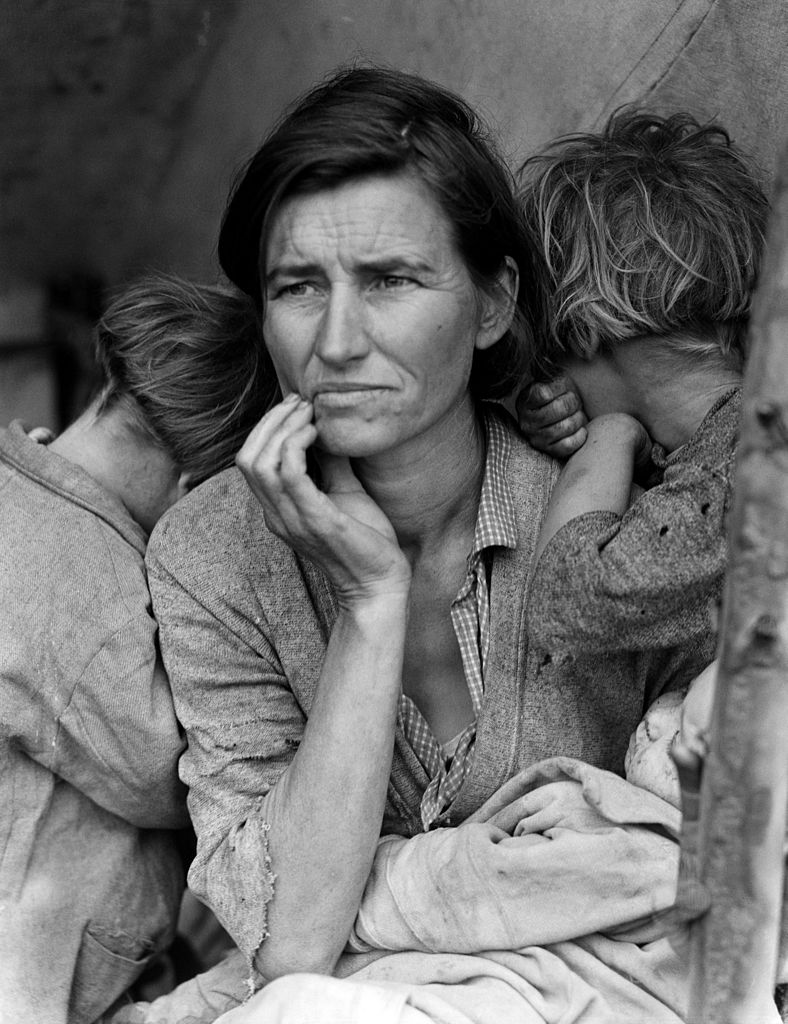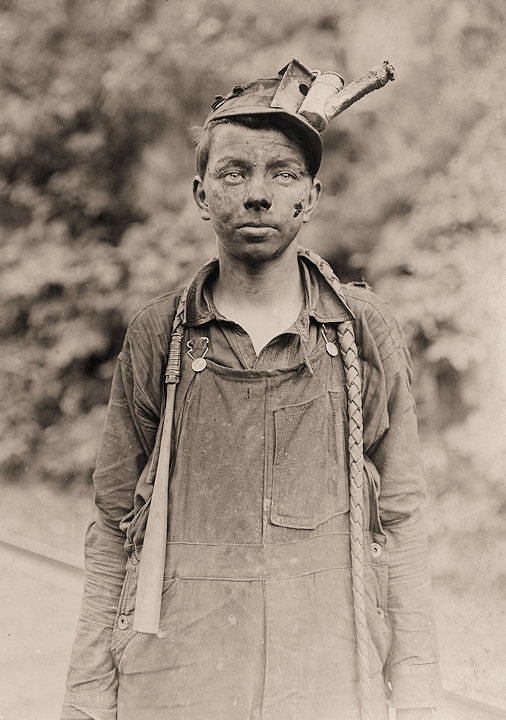
Karl Spitzweg, The Bookworm

Dorothea Lange, Migrant Mother

Lewis Hines, Mine Driver
Introduction to Sociology
Professor Larry Stern
Reading Assignments, Lecture Notes & Web Sites
Unit 7: Poverty & Inequality
Begin with the following exercises:
Play the game Spent. It is a web-based interactive game that puts you in the position of being down to your last $1,000. It’s just you and your elementary-school-age-child. You have just lost your house (the fact that you previously owned a home meant that you were middle to upper –middle class before the recession hit. You need to find a job and a place to live – and to survive the month.
Next, go to this "income calculator," and see what social class or income category you and your family fall into.
Overview:
Macionis, Society: The Basics, chapter 9 ("Social Stratification")
Historical Context:
PowerPoint Lecture: Poverty & Inequality: Historical Context
Video: Ric Burns, Documentary: New York, Episode 3: "How the Other Half Lives" [click link to watch this]
Video: Ric Burns, Documentary: New York, Episode 4: Power and People [Click link and watch from the 1-hour-ten minute mark until the 1-hour thirty-six minute mark]
Visit the following two websites:
Child Labor in America 1908-1912: Photographs of Lewis W. Hine
Between a Rock and a Hard Place: A History of American Sweatshops, 1820 - present
Video: America's Distribution of Wealth (1955) [click link to watch this brief film and compare the information - and political perspective - presented to the data presented in the next section]
Current Data:
Power Point Lecture: Poverty & Inequality in the U.S. & Texas - What the Numbers Tells Us and the Individual and Societal Costs
"Most Americans Point to Circumstances, Not Work Ethic, for Why People are Rich or Poor," Pew Research Center, March 2, 2020
Amina Dunn, "Partisans are Divided Over the Fairness of the U.S. Economy - and Why People Are Rich or Poor," Pew Research Center, Fact Tank, October 4, 2018
Ruth Igielnik, "70% of Americans say U.S. Economic System Unfairly Favors the Powerful," Pew Research Center, Fact Tank, January 9, 2020
The Center for Public Policy Priorities, “Texas Poverty 101”
Visit this web site: National Center for Children in Poverty
Wealth Inequality in America: View this brief video
The Individual and Societal Costs of being Poor
Editorial Board, "The Companies Putting Profits Ahead of Public Health: Sick Pay in the U.S.," The New York Times, March 14, 2020
Drew Desilver, "As Coronovirus spreads, which U.S. workers have paid sick leave - and which don't?," Fact Tank: Pew Research Center, March 12, 2020
Sabrina Tavernise, "Disparity in Life Spans of the Rich and the Poor Is Growing," New York Times, February 12, 2016
DeNeen L. Brown, “The High Cost of Poverty: Why the Poor Pay More,” Washington Post, May 18, 2009
Jordan Weissmann, “McDonald's Can't Figure Out How Its Workers Survive on Minimum Wage,” The Atlantic, July 16, 2013
Timothy B. Lee, “That McDonald’s budget people are making fun of isn’t cruel. It’s realistic.” The Washington Post, July 16, 2013 at 2:37 p.m. CDT
“Apple Factories accused of exploiting Chinese workers,” The Observer, April 30, 2011
Jay Livingston, “Is Profit the Ultimate Value? On JP Morgan’s $11 billion fine.” Sociological Images, October 8, 2013Peter Kaufman, "Exploitation at Home: Matthew Desmond’s Evicted," Everyday Sociology, June 28, 2016
Visit the following two web sites: The Samaritan Inn and National Coalition for the Homeless
What You Can Do (if you are so inclined):
Discussion Board on Canvas
A number of discussion topics are listed on the discussion board on Canvas. Participation can add bonus points to your final grade and "bump" you up to the next higher grade if you have reached the borderline i.e. 87, 77